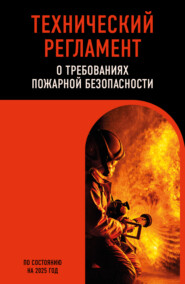По всем вопросам обращайтесь на: info@litportal.ru
(©) 2003-2024.
✖
International Short Stories: French
Настройки чтения
Размер шрифта
Высота строк
Поля
"Madame, I followed M. d'Apremont, at a distance, as far as the Rue Vieille du Temple, where he entered a small house, in an alley. There was no servant to let him in."
"An alley! No servant! Dreadful!"
"I went in directly after him, and heard him go up-stairs and unlock a door."
"Open the door himself, without knocking! Are you sure of that?"
"Yes, madame."
"The wretch! So he has a key! But, go on."
"When the door shut after him, I stole softly up-stairs, and peeped through the keyhole."
"You shall have twenty francs more."
"I peeped through the keyhole, and saw him drag a trunk along the floor."
"A trunk?"
"Then he undressed himself, and – "
"Undressed himself!"
"Then, for a few seconds, I could not see him, and directly he appeared again, in a sort of gray blouse, and a cap on his Lead."
"A blouse! What in the world does he want with a blouse? What next?"
"I came away, then, madame, and made haste to tell you; but he is there still."
"Well, now run to the corner and get me a cab, and direct the coachman to the house where you have been."
While the messenger went for the cab, Nathalie hurried on her hat and cloak, and ran into her uncle's room.
"I have found him out – he loves another. He's at her house now, in a gray blouse. But I will go and confront him, and then you will see me no more."
The old man had no time to reply. She was gone, with her messenger, in the cab. They stopped at last.
"Here is the house."
Nathalie got out, pale and trembling.
"Shall I go up-stairs with you, madame?" asked the boy.
"No, I will go alone. The third story, isn't it?"
"Yes, madame; the left-hand door, at the head of the stairs."
It seemed that now, indeed, the end of all things was at hand.
Nathalie mounted the dark, narrow stairs, and arrived at the door, and, almost fainting, she cried: "Open the door, or I shall die!"
The door was opened, and Nathalie fell into her husband's arms. He was alone in the room, clad in a gray blouse, and – smoking a Turkish pipe.
"My wife!" exclaimed Armand, in surprise.
"Your wife – who, suspecting your perfidy, has followed you, to discover the cause of your mysterious conduct!"
"How, Nathalie, my mysterious conduct? Look, here it is!" (Showing his pipe.) "Before our marriage, you forbade me to smoke, and I promised to obey you. For some months I kept my promise; but you know what it cost me; you remember how irritable and sad I became. It was my pipe, my beloved pipe, that I regretted. One day, in the country, I discovered a little cottage, where a peasant was smoking. I asked him if he could lend me a blouse and cap; for I should like to smoke with him, but it was necessary to conceal it from you, as the smell of smoke, remaining in my clothes, would have betrayed me. It was soon settled between us. I returned thither every afternoon, to indulge in my favorite occupation; and, with the precaution of a cap to keep the smoke from remaining in my hair, I contrived to deceive you. This is all the mystery. Forgive me."
Nathalie kissed him, crying: "I might have known it could not be! I am happy now, and you shall smoke as much as you please, at home."
And Nathalie returned to her uncle, saying: "Uncle, he loves me! He was only smoking, but hereafter he is to smoke at home."
"I can arrange it all," said D'Ablaincourt; "he shall smoke while he plays backgammon."
"In that way," thought the old man, "I shall be sure of my game."
JEAN MONETTE
BY EUGENE FRANCOIS VIDOCQ
At the time when I first became commissary of police, my arrondissement was in that part of Paris which includes the Rue St. Antoine – a street which has a great number of courts, alleys, and culs-de-sac issuing from it in all directions. The houses in these alleys and courts are, for the most part, inhabited by wretches wavering betwixt the last shade of poverty and actual starvation, ready to take part in any disturbance, or assist in any act of rapine or violence.
In one of these alleys, there lived at that time a man named Jean Monette, who was tolerably well stricken in years, but still a hearty man. He was a widower, and, with an only daughter, occupied a floor, au quatrième, in one of the courts; people said he had been in business and grown rich, but that he had not the heart to spend his money, which year after year accumulated, and would make a splendid fortune for his daughter at his death. With this advantage, Emma, who was really a handsome girl, did not want for suitors, and thought that, being an heiress, she might wait till she really felt a reciprocal passion for some one, and not throw herself away upon the first tolerable match that presented itself. It was on a Sunday, the first in the month of June, that Emma had, as an especial treat, obtained sufficient money from her father for an excursion with some friends to see the fountains of Versailles.
It was a beautiful day, and the basin was thronged around with thousands and thousands of persons, looking, from the variety of their dresses, more like the colors of a splendid rainbow than aught besides; and when, at four o'clock, Triton and his satellites threw up their immense volumes of water, all was wonder, astonishment, and delight; but none were more delighted than Emma, to whom the scene was quite new.
And, then, it was so pleasant to have found a gentleman who could explain everything and everybody; point out the duke of this, and the count that, and the other lions of Paris; besides, such an agreeable and well-dressed man; it was really quite condescending in him to notice them! And then, toward evening, he would insist they should all go home together in a fiacre, and that he alone should pay all the expenses, and when, with a gentle pressure of the hand and a low whisper, he begged her to say where he might come and throw himself at her feet, she thought her feelings were different to what they had ever been before. But how could she give her address – tell so dashing a man that she lived in such a place? No, she could not do that, but she would meet him at the Jardin d'Eté next Sunday evening, and dance with no one else all night.
She met him on the Sunday, and again and again, until her father began to suspect, from her frequent absence of an evening – which was formerly an unusual circumstance with her – that something must be wrong. The old man loved his money, but he loved his daughter more. She was the only link in life that kept together the chain of his affections. He had been passionately fond of his wife, and when she died, Emma had filled up the void in his heart. They were all, save his money, that he had ever loved. The world had cried out against him as a hard-hearted, rapacious man, and he, in return, despised the world.
He was, therefore, much grieved at her conduct, and questioned Emma as to where her frequent visits led her, but could only obtain for answer that she was not aware she had been absent so much as to give him uneasiness. This was unsatisfactory, and so confirmed the old man in his suspicions that he determined to have his daughter watched.
This he effected through the means of an ancien ami, then in the profession of what he called an "inspector," though his enemies (and all men have such) called him a mouchard, or spy. However, by whatever name he called himself, or others called him, he understood his business, and so effectually watched the young lady that he discovered her frequent absences to be for the purpose of meeting a man who, after walking some distance with her, managed, despite the inspector's boasted abilities, to give him the slip.
This naturally puzzled him, and so it would any man in his situation. Fancy the feelings of one of the government's employees in the argus line of business, a man renowned for his success in almost all the arduous and intricate affairs that had been committed to his care, to find himself baffled in a paltry private intrigue, and one which he had merely undertaken for the sake of friendship!
For a second time, he tried the plan of fancying himself to be well paid, thinking this would stimulate his dormant energies, knowing well that a thing done for friendship's sake is always badly done; but even here he failed. He watched them to a certain corner, but, before he could get around it, they were nowhere to be seen. This was not to be borne. It was setting him at defiance. Should he call in the assistance of a brother in the line? No, that would be to acknowledge himself beaten, and the disgrace he could not bear – his honor was concerned, and he would achieve it single handed; but, then, it was very perplexing.
The man, to his experienced eye, seemed not, as he had done to Emma, a dashing gentleman, but more like a foul bird in fine feathers. Something must be wrong, and he must find it out – but, then, again came that confounded question, how?
He would go and consult old Monette – he could, perhaps, suggest something; and, musing on the strangeness of the adventure, he walked slowly toward the house of the old man to hold a council with him on the situation.
On the road, his attention was attracted by a disturbance in the street, and mingling with the crowd, in hope of seizing some of his enemies exercising their illegal functions on whom the whole weight of his official vengeance might fall, he for the time forgot his adventure. The crowd had been drawn together by a difference of opinion between two gentlemen of the vehicular profession, respecting some right of way, and, after all the usual expressions of esteem common on such occasions had been exhausted, one of them drove off, leaving the other at least master of the field, if he had not got the expected job.
The crowd began to disperse, and with them also was going our friend, the detective, when, on turning round, he came in contact with Mlle. Monette, leaning on the arm of her mysterious lover. The light from a lamp above his head shone immediately on the face of Emma and her admirer, showing them both as clear as noonday, so that when his glance turned from the lady to the gentleman, and he obtained a full view of his face, he expressed his joy at the discovery by a loud "Whew!" which, though a short sound and soon pronounced, meant a great deal.
For first, it meant that he had made a great discovery; secondly, that he was not now astonished because he had not succeeded before in his watchfulness; thirdly – but perhaps the two mentioned may be sufficient; for, turning sharply round, he made the greatest haste to reach Monette and inform him, this time, of the result of his espionage.

















